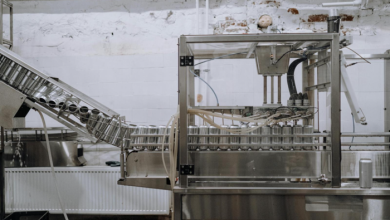
With the boom of outdoor cooking, grilling and commercial catering options, BBQ food thermometer has become one of the smoking hot growing product categories. Thermometers turn to be a necessity in precise temperature control to maintain food safety and ensure doneness of grilled steaks.
Key Factors Influencing Wholesale Pricing
MOQ, source type, target countries, delivery time, procurement time are all reasons that affect wholesale pricing. Let’s analyse why they matter one by one.
Minimum Order Quantity (MOQ)
MOQ is the most important factor impacting the per unit pricing. In general, thermometer manufacturers set tiered pricing to encourage thermometer distributors, dealers and agents to order thermometers in bulk while maintaining certain profit margins. High volumes are more possible to unlock substantial savings.
It should be noted that do not accept high MOQ in case you are short of funds or a small company to avoid unnecessary capital tie-up. Try to negotiate prices in the low season of sales.
Source Type: Manufacturer or Distributor
Cooperate with a thermometer manufacturer directly to pursue better pricing while not compromising in quality, accuracy and reliability, especially being beneficial to ODM and OEM service. On the contrary, distributors are often competitive in faster fulfillment with existing certifications.
Vet thermometer maker for ability in OEM or logo customization services to improve your brand authority if needed. Do not fall into the trap of stereotypes – factory-direct products are cheaper than other supply sources. Shopping around is indispensable before a final procurement decision.
Target Countries and Market Regulations
Import countries vary in certification requirements, tariffs and market standards. For example, FDA and NSF certification are needed in the United States; CE and RoHs are mandatory certifications for regions of the European Union; customers in UAE pay much attention to halal-related packaging norms.
Rigorous regulations cause the rising of each unit cost. Verify related regulatory requirements and tailor batch products per destination to reduce compliance costs to the great extent.

Delivery Time and Logistics Options
Improper logistics options may erase all your margins for costly air freight in peak season. Suppliers also price differently based on Incoterms (e.g., FOB vs. DDP), which shifts responsibility for shipping and customs fees. Plan 2–3 months ahead and use sea freight for major restocks to save on shipping costs.
Spot Cost-Effective but Reliable Thermometers
Low cost doesn’t have to mean low quality—if you know what to look for. Certifications like FDA, CE, NSF, and RoHS ensure that the product meets industry safety and accuracy standards.
Sourcing BBQ food thermometers at scale doesn’t have to burn your margins. By understanding the key pricing drivers—MOQ, features, timing, certifications, and supplier relationships—you can strike the perfect balance between affordability and quality.




